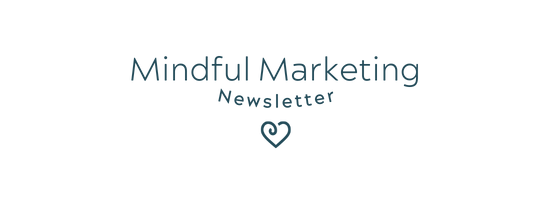A midlife career change can feel like a daring leap, but it’s one that many find rewarding. You’re not alone if the thought of replacing your current job with a new job that better aligns with your passion and skills is on your mind. This shift, embraced by many in their 30s, 40s, and 50s, offers the chance to rediscover your enthusiasm and achieve a healthier work-life balance. It’s about leveraging the rich skills and experiences you’ve accumulated to chart a path that feels more authentically ‘you,’ despite common fears that such changes are more daunting than they truly are.
This article is designed to guide you through the tantalizing process of a midlife career change. From recognizing the initial need for change to exploring your options and overcoming the challenges that may arise, we’ll dive into how to prepare for your transition in a way that’s both empowering and straightforward. By integrating key concepts like ‘discover’, ‘current job’, and ‘new job’, you’ll gain the insights needed to navigate your journey with confidence. Let’s make this change not just a dream, but a well-planned reality that brings excitement and new opportunities into your professional life.
Table of Contents
ToggleIntroduction
Navigating Midlife Career Change
In the United States, midlife career changes have become increasingly common as individuals reassess their professional paths. Whether prompted by a desire for personal fulfillment, economic necessity, or the pursuit of a long-held passion, transitioning to a new position in midlife requires careful planning and consideration.
Exploring Your Options
When contemplating a midlife career change, individuals often possess years of experience in their current field. This wealth of expertise can be invaluable, providing a strong foundation for branching out into new realms. However, it’s essential to recognize that making a shift may entail acquiring additional qualifications. While a bachelor’s degree may have sufficed for entry into your current line of work, pursuing a master’s degree or an advanced certification might be necessary to qualify for your desired role.
Seeking Guidance
Navigating this transition can be daunting, especially if it’s your first time considering a career change. Enlisting the support of a career coach can prove invaluable. A skilled coach can help you identify transferable skills, explore potential industries, and devise a strategic plan to achieve your career goals. They can also offer guidance on the best way to leverage your existing work experience and educational background to make a successful transition.
Read more about abundance life coaching here.
Assessing Fit
While embarking on a midlife career change can be an exciting opportunity for personal and professional growth, it’s crucial to ensure that the new path is a good fit for your skills, interests, and values. Consider your strengths, weaknesses, and soft skills, as well as your long-term career objectives. Will the new position provide the job satisfaction, challenges, and opportunities for advancement that you seek? Additionally, practical considerations such as health insurance and financial stability should not be overlooked.
Transitioning Effectively
Transitioning from a well-established career to a new field often means starting from the ground up. You may find yourself applying for entry-level positions or considering graduate school to acquire the necessary credentials. While this may seem daunting, remember that your years of experience and accumulated wisdom can set you apart from younger candidates. Learn how to maintain calm and reset your nervous system. Highlighting your transferable skills, adaptability, and willingness to learn can make you an attractive candidate for employers seeking candidates with diverse backgrounds and perspectives.
Identifying the Need for Change
Recognizing the signs that it’s time for a midlife career change is crucial. Often, these signs manifest as feelings of dissatisfaction, disengagement, or even resentment towards your current job and colleagues. You might find yourself constantly bored, feeling undervalued, and your work no longer aligns with your personal values.
Here is a great example of a time I recognized a need for change in my business.
Key Indicators of the Need for Change
- Persistent Dissatisfaction and Disengagement: You feel disconnected not only from your tasks but also from the people around you at work.
- Physical and Mental Exhaustion: Your job leaves you drained, impacting your health and well-being.
- Lack of Growth: There seems to be no room to learn new skills or advance in your current role.
- Misalignment with Personal Values: You discover that your job conflicts with your core beliefs and principles.
- Chronic Stress and Health Issues: Work-related stress has become a constant in your life, possibly leading to serious health problems.
- Job Envy: You find yourself often jealous of others’ careers, wishing you had their jobs.
- Underutilization of Skills: You possess abilities that are not being tapped into in your current job.
These indicators are often accompanied by a strong desire for a more meaningful and impactful career. Trusting your intuition is key; if you’re spending time browsing job boards or daydreaming about other career paths, it’s a signal that your current job no longer satisfies you. This is a moment for self-reflection to understand what truly motivates you and how you can align your career with your life goals. Remember, recognizing these signs is the first step towards making a transformative career change.
Exploring Your Options
Research and Reflect
Before diving into a new field, it’s crucial to identify the type of job you’re aiming for and the qualifications it requires. Start by listing your interests and skills, and match them with potential job roles. Research these roles to understand the necessary educational background or practical experience needed. Websites like BLS (Bureau of Labor Statistics) offer detailed insights into various professions, including growth projections and educational requirements.
Engage with Professionals
Talking to individuals already working in your desired field can provide invaluable insights. These conversations can illuminate the day-to-day responsibilities, career progression opportunities, and the skills truly essential for success in the role. Consider conducting informational interviews or joining professional networks to deepen your understanding and establish valuable connections.
Flexible Work Opportunities
For those needing a gradual transition or balancing other life commitments, exploring flexible work options can be beneficial. Platforms like FlexJobs list legitimate part-time, freelance, or remote job opportunities, which can be an excellent way to ease into a new career without fully committing right away.
Consider In-House Transitions
Sometimes, the best opportunity for change lies within your current workplace. Discuss with your HR department about possible internal transfers to departments that align more closely with your new career aspirations. This approach allows you to leverage your existing company knowledge and networks while shifting to a more fulfilling role.
Build and Leverage Skills
Identify and develop the core skills required in your new field. Online courses, workshops, and bootcamps are excellent resources for gaining necessary expertise quickly. Additionally, list your transferable skills—such as leadership, communication, or project management—that will aid your transition and appeal to potential employers in any field.
By methodically exploring your options and strategically planning your approach, you can make a midlife career change not only possible but also profoundly rewarding. Remember, this journey is about finding fulfillment and making your professional life resonate with your personal aspirations and values.
Overcoming Challenges
Embarking on a midlife career change is an exciting journey, but it comes with its unique set of challenges. Here’s how you can tackle them with confidence and a bit of savvy maneuvering:
Networking: Your New Best Friend
Engage actively in networking. Reach out to old colleagues, attend industry meetups, and participate in online forums. Your existing network could be your greatest asset in landing that new job.
Embrace Learning
Whether it’s returning to school or picking up new certifications, education is a powerful tool. Platforms like Coursera or Udemy offer courses that can bolster your knowledge and make your resume stand out.
Flexibility and Patience: Your Virtues
Understand that results won’t appear overnight. It’s a marathon, not a sprint. Adjusting your career path might require starting at a lower position than you’re used to or initially earning less.
Transfer Your Skills
Highlight how your existing skills can benefit your new role. Skills like leadership, communication, and project management are highly transferable and valued across various industries.
Tackle Self-Doubt
Change your mindset by addressing fears and self-doubt head-on. Write down your fears, replace them with positive affirmations, and repeat them until they become your truth.
Stay Updated
Keep abreast of the latest industry trends and technologies relevant to your new field. This knowledge will not only aid in your interviews but also boost your confidence.
Showcase Your Unique Value
In job applications and interviews, focus on your rich experience and diverse skill set. Explain how these can contribute uniquely to potential employers, adding value to their teams.
By maintaining a positive outlook and systematically addressing each challenge, you’re setting yourself up for success in your new career path. Remember, it’s about taking one confident step at a time towards your future.
Preparing for Your Transition
Evaluate and Plan
Start by taking a deep dive into who you are and what you truly desire from your career moving forward. Ask yourself some tough questions: What are your core strengths? What drives you? Identifying the intersection of your skills, passions, and the impact you wish to make is crucial. This is your sweet spot, and discovering it can be incredibly enlightening.
Upskill and Educate
Once you’ve pinpointed your new direction, it’s time to bridge the gap between your current abilities and the skills your new job demands. Look into relevant courses—be it online platforms like Coursera or local workshops. Don’t shy away from returning to education if necessary. Remember, every step you take is an investment in your future self.
Leverage Your Network
Your professional network is a goldmine during a career transition. Reach out, engage in conversations, and don’t hesitate to ask for advice or introductions. Also, consider informational interviews to gain insights and make your face known in the new industry.
Practical Steps
Update your resume and LinkedIn profile to reflect your latest skills and career aspirations. Highlight your transferable skills and ensure your digital presence is polished and professional. If feasible, start with part-time or freelance gigs to gain a foothold in your new field.
You also want to focus on your mental health so that you are calm and professional in all situations.
I can help guide you to a calm and resilient nervous system with practical steps.
Financial and Personal Considerations
Switching careers midlife often comes with significant financial implications. Plan meticulously, considering potential changes in income, and discuss with your family to ensure their support. Sometimes, sacrifices may be necessary, but with a clear vision and a solid plan, the transition can lead to a more fulfilling career.
By systematically preparing for your transition, you not only mitigate risks but also set the stage for a career that brings joy and satisfaction. Remember, this journey is about aligning your professional life with your personal aspirations and embracing the opportunities that come with change.
Conclusion
Through the exploration of recognizing the need for change, to intelligently navigating the vast seas of new opportunities, we’ve armed you with a compass to chart a course towards a career that not only fulfills but invigorates. As we’ve journeyed together from the initial spark of desire for change through the practical steps of transition, remember that the path to rediscovering your professional joy is both a daring adventure and a deeply personal quest. It’s a process peppered with challenges, yet ripe with the exhilarating possibility of aligning your work with your most authentic self.
Midlife career changes represent not just a response to a midlife crisis but also an opportunity for older individuals to capitalize on their human resources, including their years of experience and sales expertise, to transition into new roles. Whether pivoting from a project manager to an entry-level position in a new industry or pursuing an advanced degree to enhance their qualifications, older people bring a wealth of wisdom and resilience to the table. Embracing the challenge of starting anew after a long time in their current work, they prove that age is not a barrier to success but rather a springboard for reinvention.
FAQs
How can I effectively transition to a new career in my midlife?
To successfully navigate a midlife career change, start by shifting your mindset to embrace the transition. Identify the career path you’re interested in and research the necessary skills you’ll need to acquire. Create a financial plan to support your career change, invest time in learning new skills, and network with professionals in the desired industry. Prepare thoroughly for job interviews to increase your chances of success.
What are some of the best career options for individuals over 50 looking for a change?
For those over 50 considering a career shift, several fields are welcoming to career changers. Opportunities can be found in administrative roles, many of which offer flexibility and remote work options. The fields of education and training, writing, accounting and finance, medical and health, as well as mortgage and real estate, are also excellent choices for this demographic.
What steps should I take to switch industries in the middle of my career?
When you’re ready to switch industries mid-career, mentally prepare yourself for potentially starting at a lower-level position. Clarify the job role you’re targeting and conduct thorough research on the industry. Set a realistic timeline for your transition, focus on developing relevant skills, and tailor your resume to reflect your new career direction. Be ready to explain your motivations for changing careers during job interviews.
What is a good career to start at the age of 45?
While the original question did not provide a specific answer, it’s important to note that at 45, you can start a career in any field that aligns with your interests and skills. Consider industries that value experience and maturity, or those that offer training programs for new entrants. It’s never too late to pursue a fulfilling career that brings you satisfaction and meets your professional goals.






